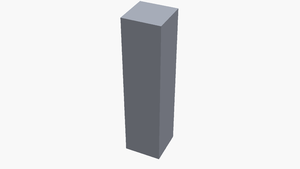Keys: Difference between revisions
From
No edit summary |
No edit summary |
||
| Line 17: | Line 17: | ||
In mechanical engineering, a key is a machine element used to connect a rotating machine element to a shaft. The key prevents relative rotation between the two parts and may enable torque transmission. For a key to function, the shaft and rotating machine element must have a keyway and a keyseat, which is a slot and pocket in which the key fits. The whole system is called a keyed joint.[1][2] A keyed joint may allow relative axial movement between the parts. | In mechanical engineering, a key is a machine element used to connect a rotating machine element to a shaft. The key prevents relative rotation between the two parts and may enable torque transmission. For a key to function, the shaft and rotating machine element must have a keyway and a keyseat, which is a slot and pocket in which the key fits. The whole system is called a keyed joint.[1][2] A keyed joint may allow relative axial movement between the parts. | ||
Commonly keyed components include gears, pulleys, [[ | Commonly keyed components include gears, pulleys, [[shaft couplers]], and [[washers]]. | ||
=Challenges= | =Challenges= | ||
Revision as of 17:00, 21 May 2021
Introduction
In mechanical engineering, a key is a machine element used to connect a rotating machine element to a shaft. The key prevents relative rotation between the two parts and may enable torque transmission. For a key to function, the shaft and rotating machine element must have a keyway and a keyseat, which is a slot and pocket in which the key fits. The whole system is called a keyed joint.[1][2] A keyed joint may allow relative axial movement between the parts.
Commonly keyed components include gears, pulleys, shaft couplers, and washers.
